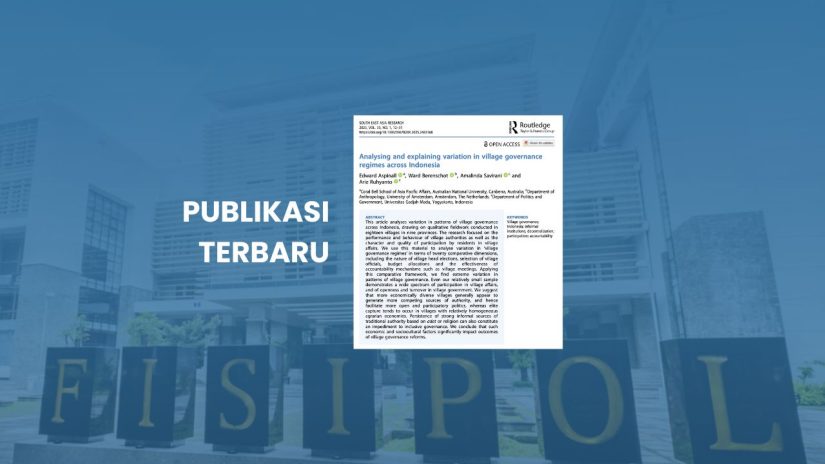
Two lecturers from the Department of Politics and Government (DPP), Faculty of Social and Political Sciences (FISIPOL) Universitas Gadjah Mada, Amalinda Savirani and Arie Ruhyanto, have once again contributed to international scholarship through their latest publication in the prestigious journal Asian Journal of Political Science (Routledge, Taylor & Francis). The article, titled “Analysing and Explaining Variation in Village Governance Regimes Across Indonesia,” was co-authored with Edward Aspinall and Ward Berenschot.
This article provides an in-depth examination of the diversity of village governance patterns across Indonesia. The authors analyze how different social, political, and economic contexts at the local level give rise to various forms of governance regimes—ranging from participatory and accountable systems to those that are more elitist and closed.
Using a comparative approach grounded in extensive field data from multiple regions in Indonesia, the article presents a comprehensive analytical framework to understand why one village may operate democratically and transparently, while another remains centralized and exclusive.
Interestingly, the study does not stop at describing the different governance regimes but also explores the factors that shape them: the role of local elites, the dynamics of village head elections, the influence of central government programs, and the capacity of local institutions.
This research makes a significant contribution to ongoing efforts to strengthen inclusive and democratic local governance. It also opens up broader discussions on how village reforms should be encouraged not in a uniform manner, but in ways that are contextual and responsive to each community’s unique characteristics.
Relevant SDGs (Integrated in the Narrative)
This research is closely aligned with several Sustainable Development Goals (SDGs):
-
SDG 16 – Peace, Justice, and Strong Institutions: by promoting democratic, transparent, and accountable governance at the village level.
-
SDG 10 – Reduced Inequalities: by addressing variations in governance that affect equality of participation and representation in different villages.
-
SDG 11 – Sustainable Cities and Communities: by emphasizing governance models that are contextually responsive and inclusive, strengthening the role of villages in sustainable local development.
